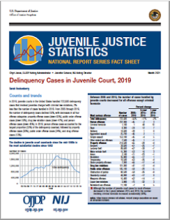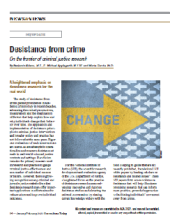Offenses
Space-Time Analysis (CrimeStat IV: A Spatial Statistics Program for the Analysis of Crime Incident Locations, Version 4.0)
Effects of Physical and Emotional Child Abuse and Its Chronicity on Crime Into Adulthood
Appendix C: Negative Binomial Regression Models and Estimation Methods (CrimeStat IV: A Spatial Statistics Program for the Analysis of Crime Incident Locations, Version 4.0)
Appendix B: Ordinary Least Squares and Poisson Regression Models (CrimeStat IV: A Spatial Statistics Program for the Analysis of Crime Incident Locations, Version 4.0)
Appendix A: Some Notes on the Statistical Comparison of Two Samples (CrimeStat IV: A Spatial Statistics Program for the Analysis of Crime Incident Locations, Version 4.0)
CrimeStat Regression Module (CrimeStat IV: A Spatial Statistics Program for the Analysis of Crime Incident Locations, Version 4.0)
Spatial Regression Modeling (CrimeStat IV: A Spatial Statistics Program for the Analysis of Crime Incident Locations, Version 4.0)
Binomial Regression Modeling (CrimeStat IV: A Spatial Statistics Program for the Analysis of Crime Incident Locations, Version 4.0)
Bayesian Journey-to-Crime Estimation (CrimeStat IV: A Spatial Statistics Program for the Analysis of Crime Incident Locations, Version 4.0)
Head-Bang Interpolation (CrimeStat IV: A Spatial Statistics Program for the Analysis of Crime Incident Locations, Version 4.0)
Kernel Density Interpolation (CrimeStat IV: A Spatial Statistics Program for the Analysis of Crime Incident Locations, Version 4.0)
Hot Spot Analysis of Points: II (CrimeStat IV: A Spatial Statistics Program for the Analysis of Crime Incident Locations, Version 4.0)
Spatial Autocorrelation Statistics (CrimeStat IV: A Spatial Statistics Program for the Analysis of Crime Incident Locations, Version 4.0)
Entering Data into CrimeStat IV (CrimeStat IV: A Spatial Statistics Program for the Analysis of Crime Incident Locations, Version 4.0)
License Plate Reader (LPR) Police Patrols in Crime Hot Spots: An Experimental Evaluation in Two Adjacent Jurisdictions
Hidden War: Crime and the Tragedy of Public Housing In Chicago
Delinquency Cases in Juvenile Court, 2019
Anger versus fear about crime: how common is it, where does it come from, and why does it matter?
Opioids, Race, Context, and Journeys to Crime: Analyzing Black-White Differences in Travel Associated With Opioid Possession Offenses
Desistance from Crime: On the Frontier of Criminal Justice Research
Booker and Beyond Analyzing Sentencing Reform and Exploring New Research Directions
This webinar features a discussion of previously published research on the U.S. Supreme Court’s 2005 Booker decision - which effectively transformed the United States Sentencing Guidelines from a mandatory, to an advisory, system. The presentation will address selected research findings from the last 15 years. Individual participants will briefly review their previous research findings with particular attention paid to the analytic methods used.
See the YouTube Terms of Service and Google Privacy Policy
Crime Scene Documentation: Weighing the Merits of Three-Dimensional Laser Scanning
Rapid DNA Crime Scene Sample Multi-Laboratory Evaluation Project
Multilevel Evaluation of Project Safe Neighborhoods
Project Safe Neighborhoods (PSN) is a DOJ-sponsored initiative to reduce violent crime, particularly gun crime, by fostering cooperation by criminal justice agencies and local partners to develop and implement strategic approaches.
See the YouTube Terms of Service and Google Privacy Policy




